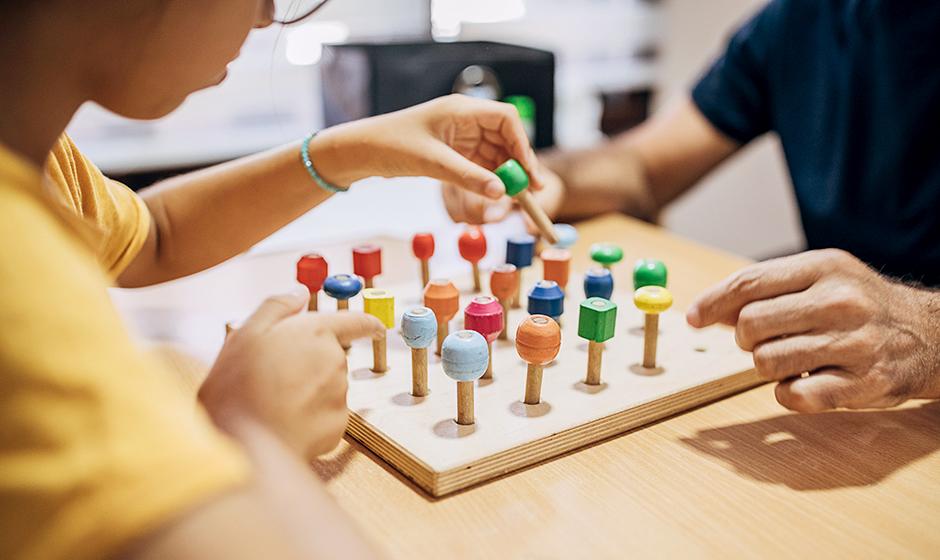
The virtual and community-based program makes it easier for patients to continue their recovery after being discharged from the hospital.
Shown to be successful in both virtual and in community-based settings, the Graded Repetitive Arm Supplementary Program (GRASP)—designed by Vancouver Coastal Health Research Institute researcher Dr. Janice Eng—puts recovery into the hands of stroke patients. According to the results of two recent studies led by Eng, GRASP exercises significantly improved stroke patients’ arm and hand function.
“Medical advances have increased stroke survivorship; however, many survivors will have arm and hand impairment,” says Eng. “These new offerings of the established GRASP program extend in-hospital rehabilitation to the home and community settings, overcoming several barriers to recovery that patients and the health care system previously faced.”

Stroke is caused by interrupted or reduced blood flow to the brain. Without an adequate blood supply, brain cells can begin to deteriorate and die within minutes, requiring immediate medical attention. While people aged 55 and older are at higher risk of stroke, one quarter of Canadian stroke patients are under 65 years of age1.
Of the 62,000 Canadians who have a stroke each year, over 400,000 will experience long-term effects2, which can include partial or total paralysis of limbs and other parts of the body, as well as reduced dexterity and motor function.
“Limited mobility, such as the inability to pick up a fork or button up a shirt, affects around 88 per cent of recovering stroke patients, and has a significant impact on their independence and quality of life.”
The arm and hand exercises provided through GRASP are geared towards improving arm and hand strength and coordination, complementing the work of physical or occupational therapists. Patients are guided through a series of strength-building and coordination-enhancing moves, such as picking up items and squeezing a ball, completing hundreds to thousands of repetitions of prescribed exercises daily throughout the program.
While the program is often administered within the first four weeks following a stroke, many patients will be ready to return home within that time frame, making community- and home-based programs essential pieces in the recovery puzzle.
GRASP in community settings offers motivation and support
Eng conducted two related studies on GRASP that were published in Physical Therapy, the official journal of the American Physical Therapy Association, in March 2021—in partnership with the Stroke Recovery Association of BC, which is an affiliate of the March of Dimes Canada.
Her community-based GRASP study investigated the outcomes of a 10-week in-person program administered to 13 stroke patients at a community centre in Vancouver, BC.
Participants were guided through GRASP exercises and curriculum by trained professionals during weekly in-person sessions. All experienced significant improvement in their upper extremity function and quality of life by the end of the study. Participants cited the group environment as essential, while instructors cited workplace coaching as a key ingredient.
“One of our goals is to see the GRASP program offered through community service providers on an ongoing basis throughout the province.”
An added bonus of the community centre setting was that it provided an accessible venue that exposed participants to other opportunities to participate in exercise and recreation activities. “It also offered participants an opportunity to develop friendships with others, which can add to their recovery,” says Eng.
Eng’s virtual GRASP study was initially designed for an in-person setting. However, the COVID-19 pandemic saw it quickly pivot to an online videoconferencing platform instead—a format that continues to be offered through the Stroke Recovery Association of BC. The 11 participants in the virtual GRASP also experienced improvements in their upper extremity function, according to study results.
“This virtual program allows patients to continue to recover at home while meeting other folks who are in similar situations to them, which can also be quite motivating.”
As one GRASP participant noted: “The staff and volunteers were awesome and so helpful; and, being with the participants, sharing/ getting to know them and the social/ community aspect of it made me feel supported and less alone.”
Eng is recruiting for a new study called the Arm Boot Camp for Stroke Study. For more information, contact study coordinator Chihya Hung at chihya.hung@ubc.ca.
1 Government of Canada - Stroke in Canada
2 VGH & UBC Hospital Foundation - Stroke Health


